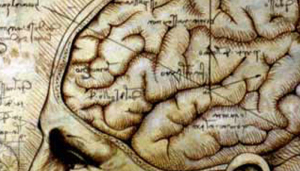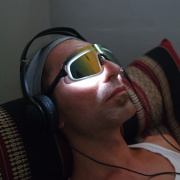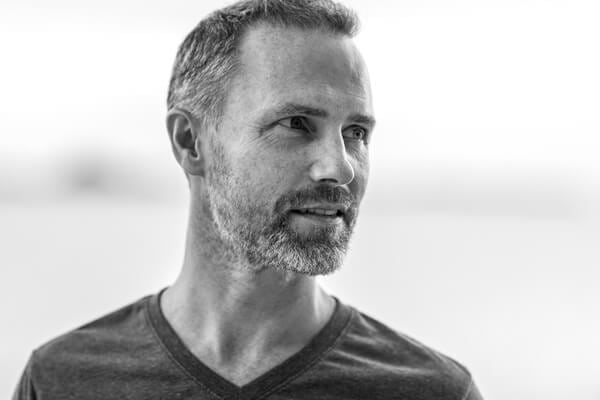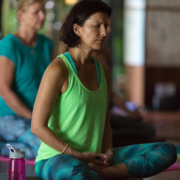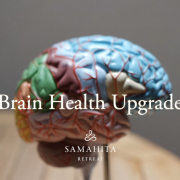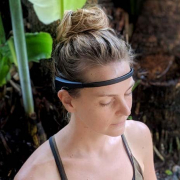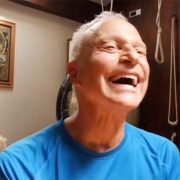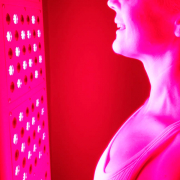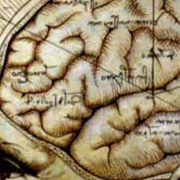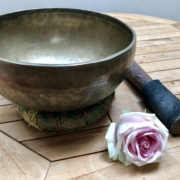 https://samahitaretreat.com/wp-content/uploads/2023/11/IMG_1290-2-scaled.jpg
1920
2560
Kirsten Mia
http://samahitaretreat.com/wp-content/uploads/2024/01/samahita-logo-v2.svg
Kirsten Mia2023-11-21 21:09:402023-11-21 21:09:40Music makes the world go round!
https://samahitaretreat.com/wp-content/uploads/2023/11/IMG_1290-2-scaled.jpg
1920
2560
Kirsten Mia
http://samahitaretreat.com/wp-content/uploads/2024/01/samahita-logo-v2.svg
Kirsten Mia2023-11-21 21:09:402023-11-21 21:09:40Music makes the world go round!Signs and Symptoms of Poor Brain Health
The topic of health typically revolves around a degree of ill-health in and through the body and ways to improve the function of the body. When mental health is discussed it is usually under the area of psychological pathologies or a depleted brain that no longer performs in a normal manner, labelled under dementia. However, the health of your brain impacts every thought, behavior and action. Psychological pathology and dementia are extreme cases that most of us hope to avoid yet the majority of people have brains that are not functioning in their healthiest state. Figures from studies in the US show that at least 5 million Americans have had a traumatic brain injury and 50,000 die every year from injuries related to the same. Even more are walking around without realizing that the brain is compromised and even underwent such trauma.
The brain is the body’s most essential organ and has the highest energy demands relative to its size. All bodily and mental functions are related to its performance. So it is a vast oversight by the health community to not pay more attention to keeping it in a truly healthy state. The organic and ancient practices from yoga and meditation were developed to care for the state of the brain. Hatha yoga specifically pays attention to it through a primary focus on the quality of breath via the two nostrils. In addition, it also understands that the state of the inner organs, especially the digestive organs, have a great impact on brain health.
Air, light, nutrition, intellectual stimulation, exercise, certain supplements, relaxation, mental peace and quiet, direct contact with nature, social interaction, caring and sharing all add up as support for the brain. This has been a careful consideration for the nature of programs and the environment at Samahita Retreat. As technology improves and interest in brain states and function grows we can add tech hacks to this list to protect, nourish and enhance brain health. My academic study and research has helped understand more intensively the body-brain health connection and how yoga and meditation play a part but also how technology can help. This has led to the development of the Brain Health Upgrade program at Samahita.
The state of your brain today is a real indicator of how things will go years down the line. Before we discuss taking control of your health with brain support in mind it is important to consider the signs and symptoms of poor brain health.
- Low resilience – do you get frustrated and irritated, especially at a similar time of day, regularly?
- Brain fog – does your thinking get foggy and tired at certain times?
- Fatigue – do you feel in your body a heaviness, pressure on your nerves, but especially on a mental level where any more thinking is just too much?
- Irregular emotions – mood swings and more sensitive to comments directed at you?
- Forgetful – do you forget names, things to do, more often than you’d like?
- Lack of motivation – do you feel you want to work or take care of yourself but it’s just too much?
- Food cravings and indulgence – do you feed your brain the best nutrition or find yourself a slave to cravings, urges, screamed at you from processed food, too much food, at all sorts of time of day and night?
- Energy crashes – especially in the middle of the day, wishing for a nap?
- Disrupted or poor quality sleep – do you lack in deep sleep and REM sleep whereby the quality of your sleep is low and how you feel and operate the next day is impaired?
- Low sex drive – your body might be tired but the thought of getting sexy is more of a burden?
- Underactive physically – despite best intentions do you skip work outs and experience lower energy even if you are to try a work out?
- Busy mind – is peace of mind a far off concept and instead you’re stuck with a mind that won’t shut up, involved in a myriad of small thoughts and issues?
- Meditation nightmare – trying to sit and look in, be quiet, enjoy inner space is just not interesting, boring, too much or too hard?
- Family history – does anyone in your family suffer from dementia or Alzheimer’s?
If any of these feature in your life then look more intensely at your daily habits, quality of sleep and relationships. Nature, body and mind practices, nutrition, relaxation are key to bring more fully into your life. We provide the setting for this at Samahita but also give you extra tools to help your brain. We do it because it is essential.
Dr. Paul Dallaghan’s expertise with breathwork, body and meditative practices comes from three sources: (1) three decades of daily dedicated practice and teaching these techniques; (2) uniquely acknowledged in the Yoga tradition by the title of “Master Yogi-Prānācharya (expert in breath)”, following an immersion in the original culture through one-on-one direct training in practice and study of ancient texts; (3) a PhD in doctoral scientific research at a leading US university (Emory) covering both the tradition and science of yoga and breath practices in terms of stress, health and aging. As a result, Paul occupies a unique space to impart genuine teaching and science on the breath, body, and meditative practices, seen as a Teacher-of-teachers and identified to carry on the tradition of Pranayama. His sincere and ongoing role is to teach, write and research, to help put out experienced and authentic information on these areas of how we live, breathe and be, to help people improve their mental and physical health, and live more fulfilling lives.
For more on his background see his bio
More from the Samahita Blog
